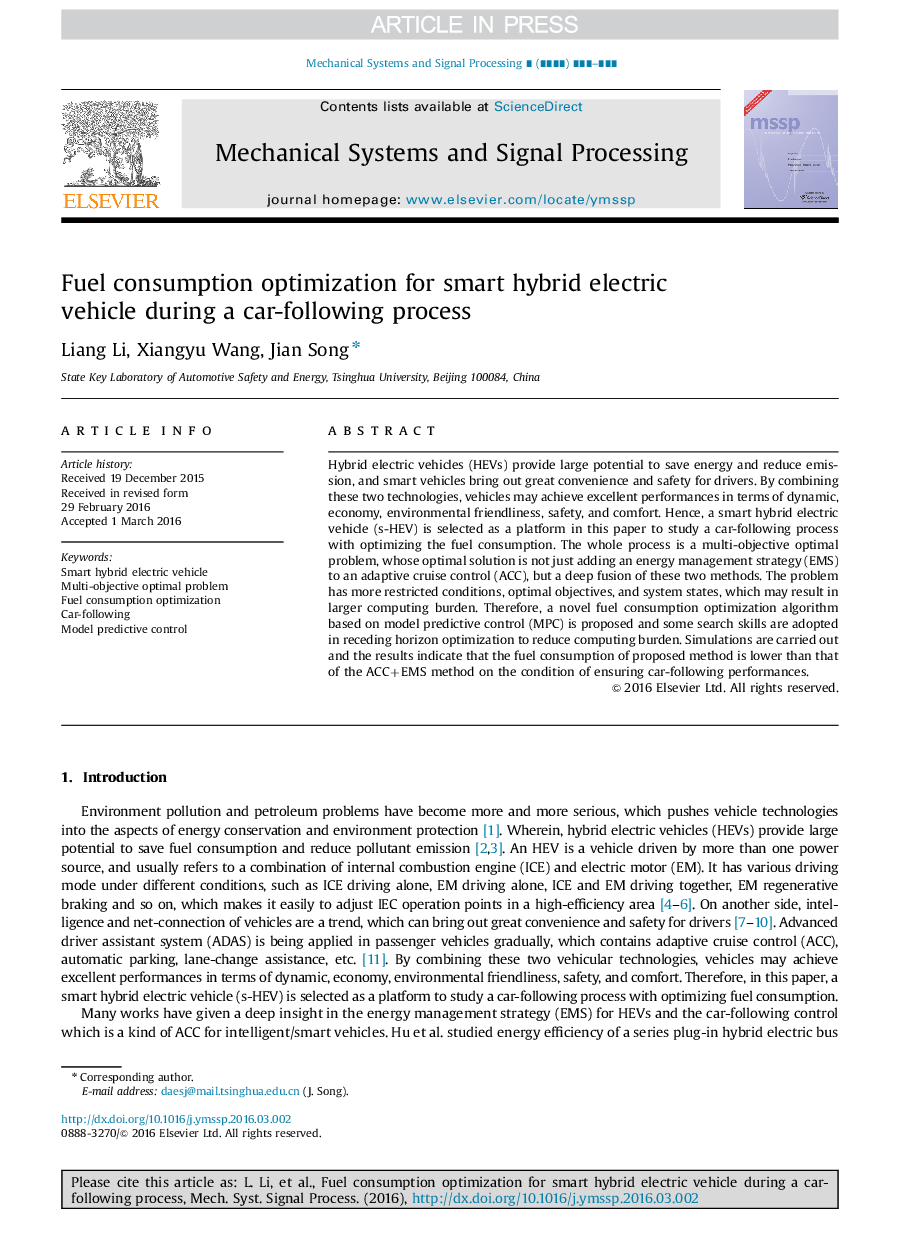ترجمه فارسی عنوان مقاله
بهینه سازی مصرف سوخت برای موتور الکتریکی هیبریدی هوشمند در طول فرایند زیر ماشین
عنوان انگلیسی
Fuel consumption optimization for smart hybrid electric vehicle during a car-following process
| کد مقاله | سال انتشار | تعداد صفحات مقاله انگلیسی |
|---|---|---|
| 92490 | 2017 | 13 صفحه PDF |
منبع

Publisher : Elsevier - Science Direct (الزویر - ساینس دایرکت)
Journal : Mechanical Systems and Signal Processing, Volume 87, Part B, 15 March 2017, Pages 17-29
ترجمه کلمات کلیدی
خودرو هیبریدی هوشمند، مشکل بهینه چند منظوره بهینه سازی مصرف سوخت، ماشین زیر، کنترل پیش بینی مدل،
کلمات کلیدی انگلیسی
Smart hybrid electric vehicle; Multi-objective optimal problem; Fuel consumption optimization; Car-following; Model predictive control;

